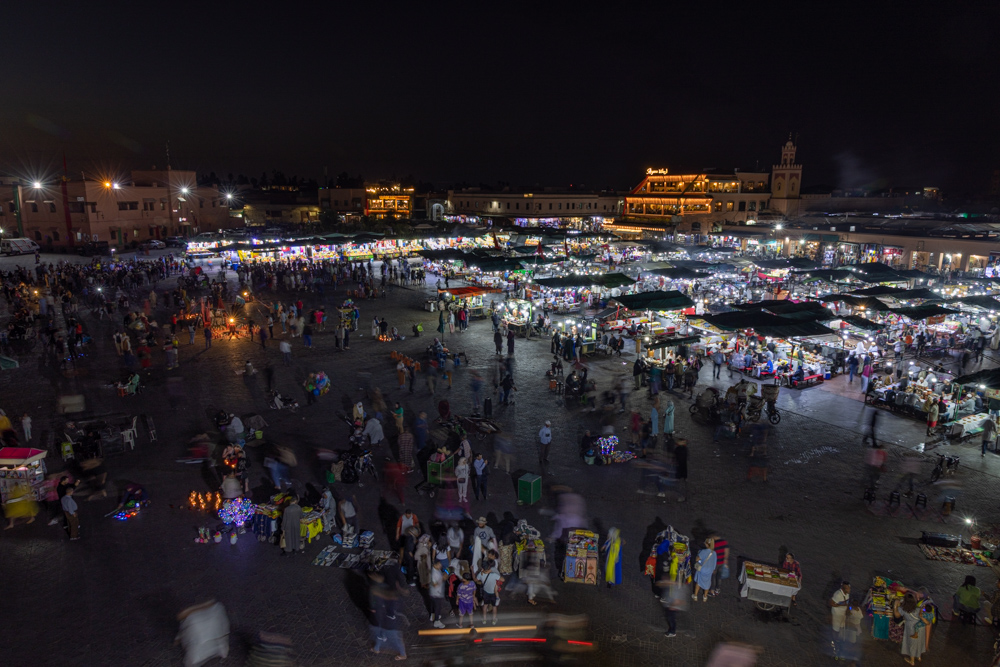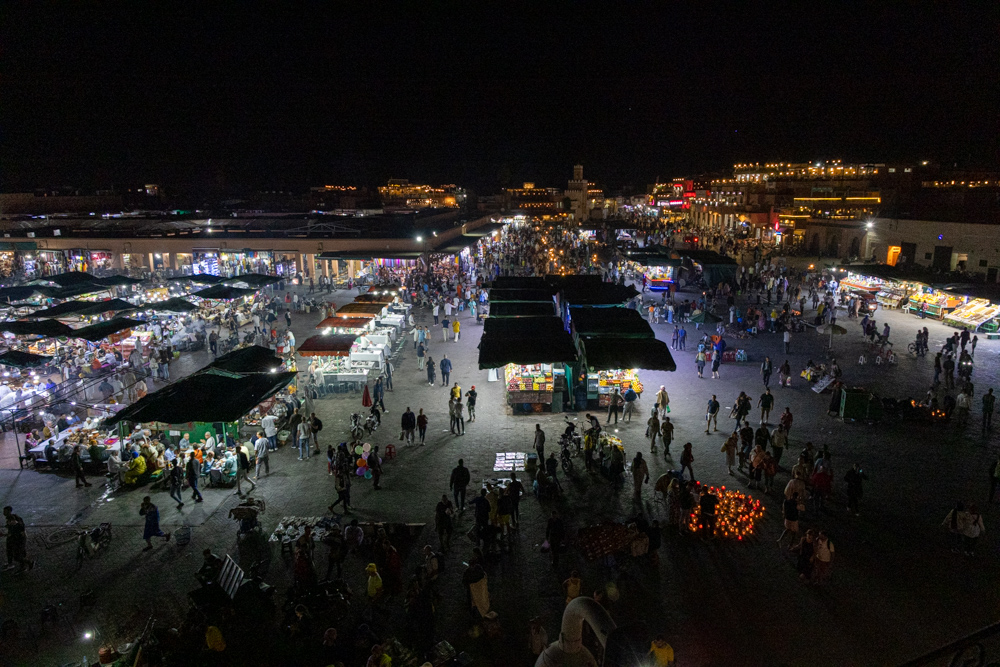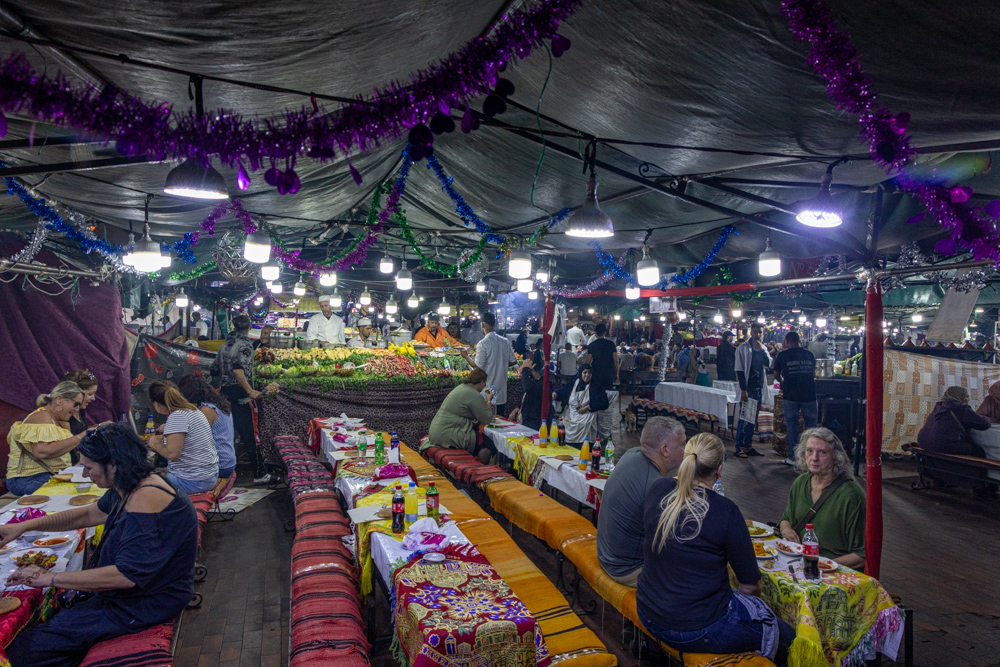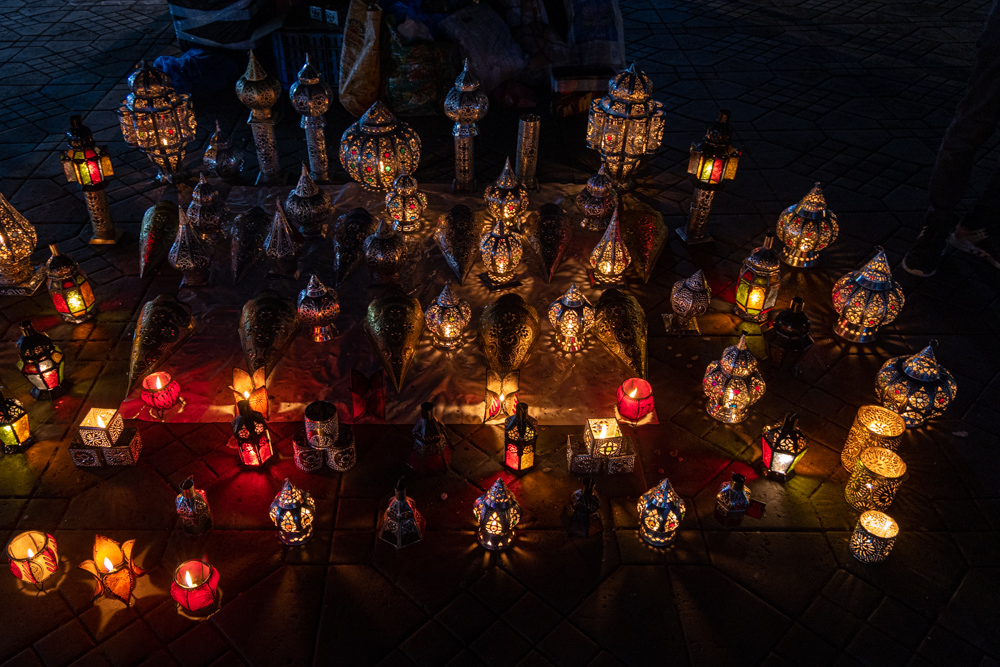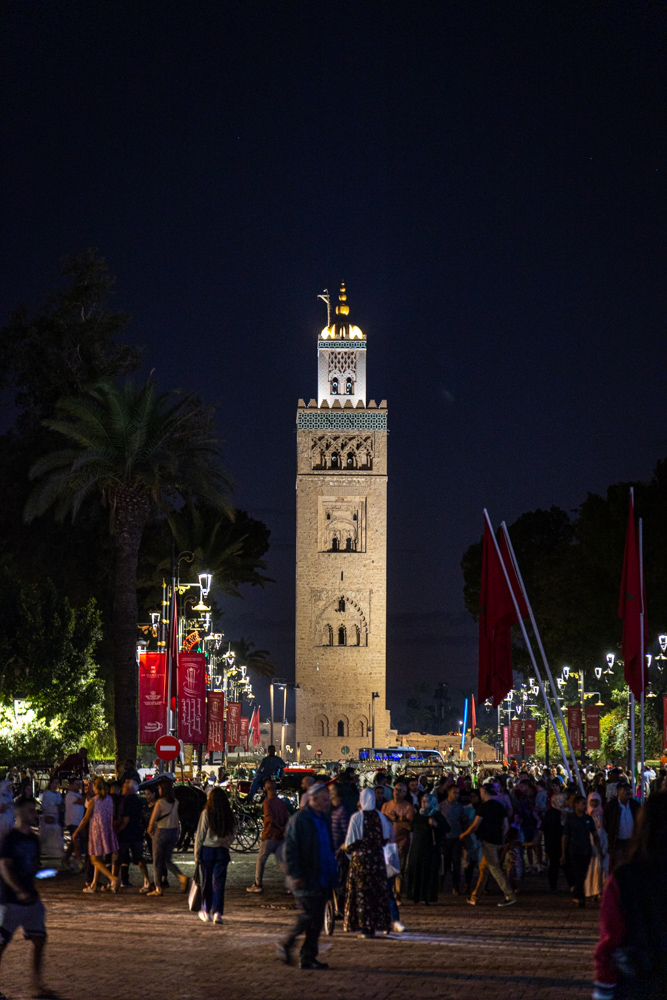Monday - 7 November 2022 -
Up early to arrive at Bahia Palace before the crowds - we arrived prior to opening, and there was a line - but
we moved quickly to get in and take pictures without the crowds.
The Bahia Palace is a mid - late 19th-century palace. The palace was first begun by Si Musa, grand vizier of Alaouite sultan Muhammad ibn Abd al-Rahman, in 1859 and then continued and expanded by his son Si Ba Ahmed ibn Musa, grand vizier of Sultan Moulay Abdelaziz between 1894 and 1900.
The Bahia Palace is a mid - late 19th-century palace. The palace was first begun by Si Musa, grand vizier of Alaouite sultan Muhammad ibn Abd al-Rahman, in 1859 and then continued and expanded by his son Si Ba Ahmed ibn Musa, grand vizier of Sultan Moulay Abdelaziz between 1894 and 1900.
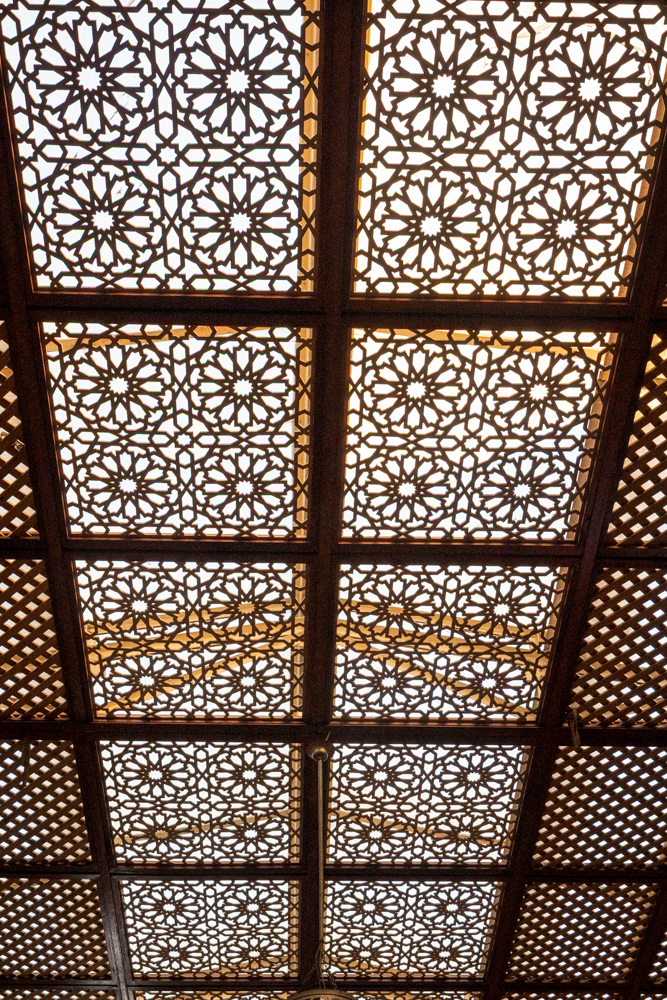
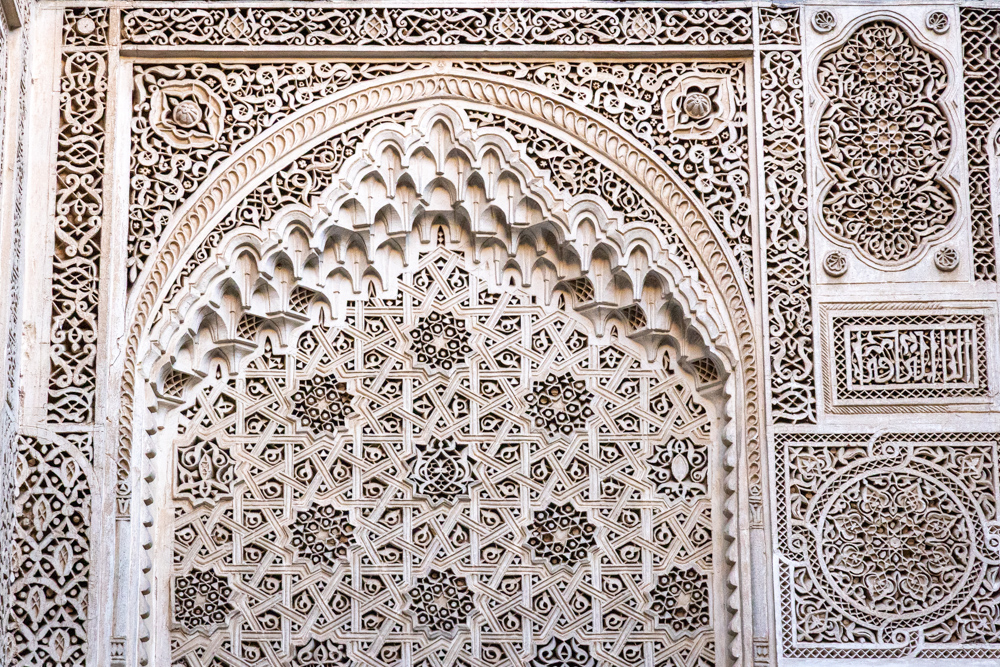
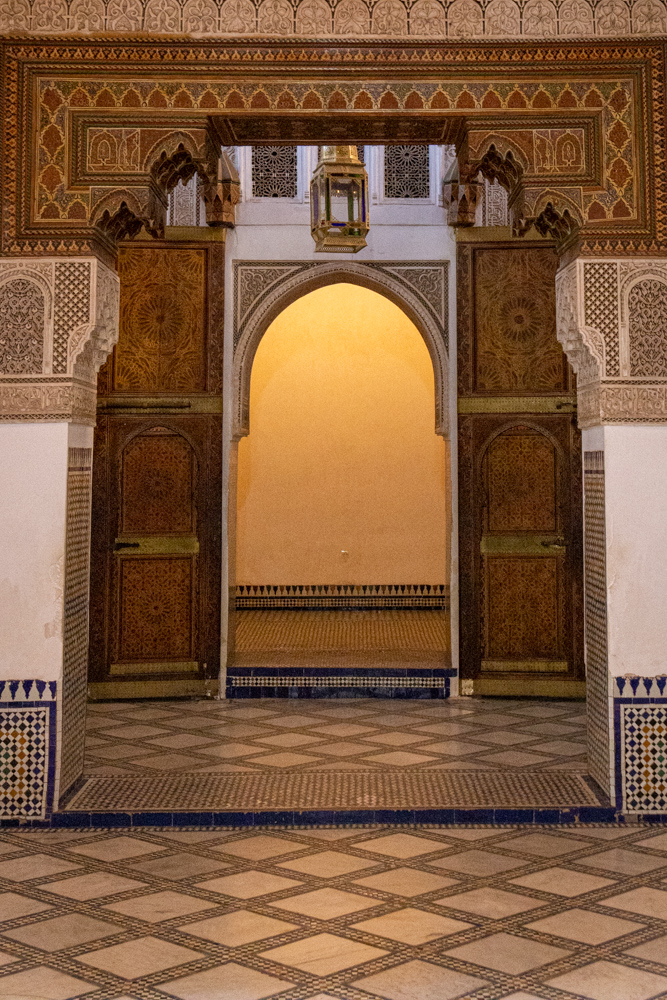
The palace was built piecemeal over many years - adding on as needed.


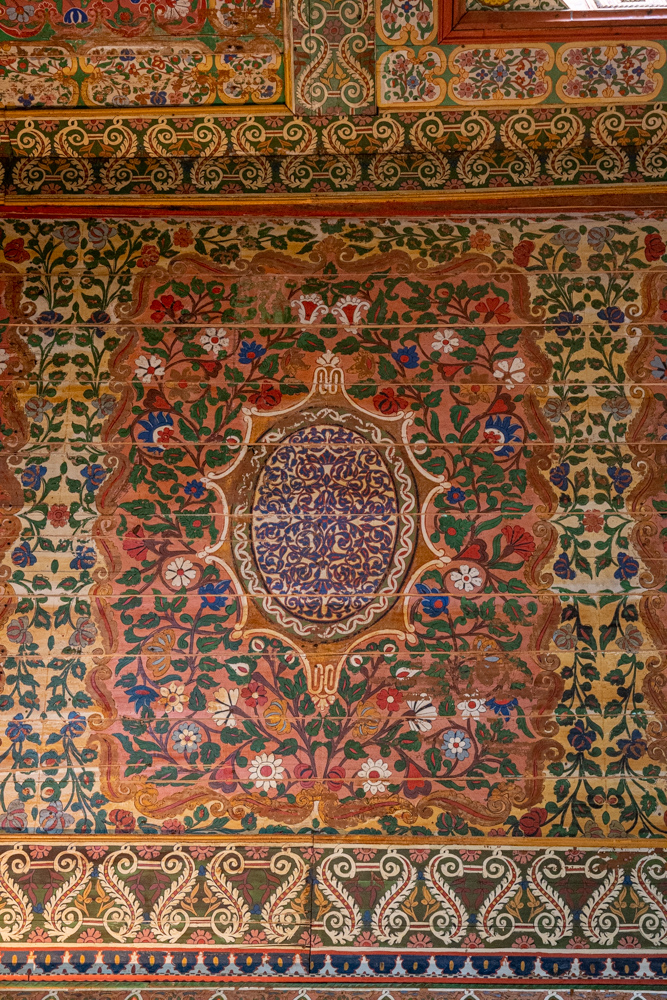
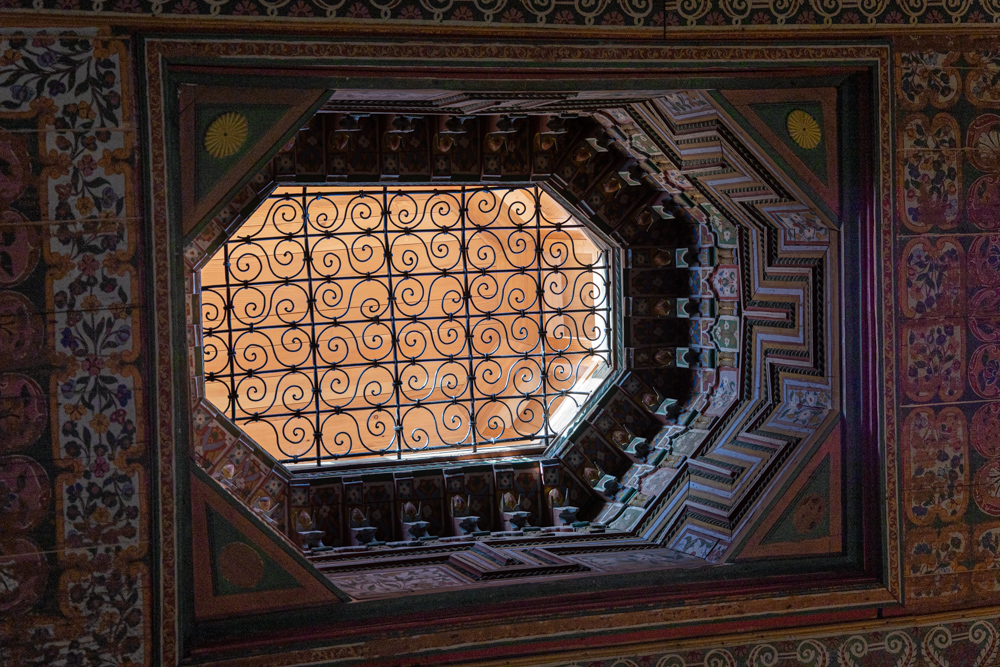

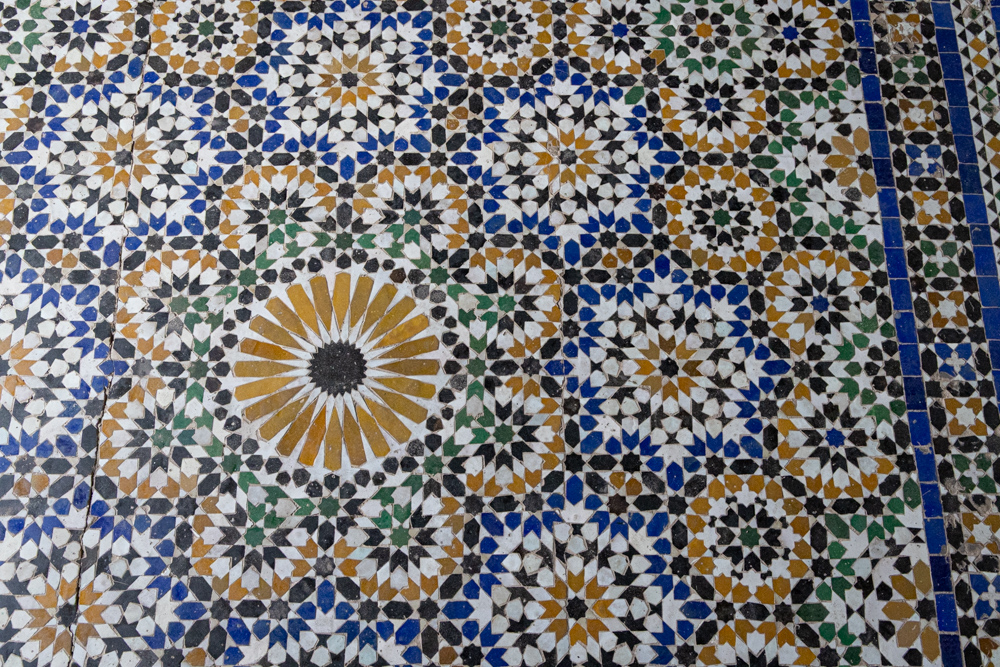

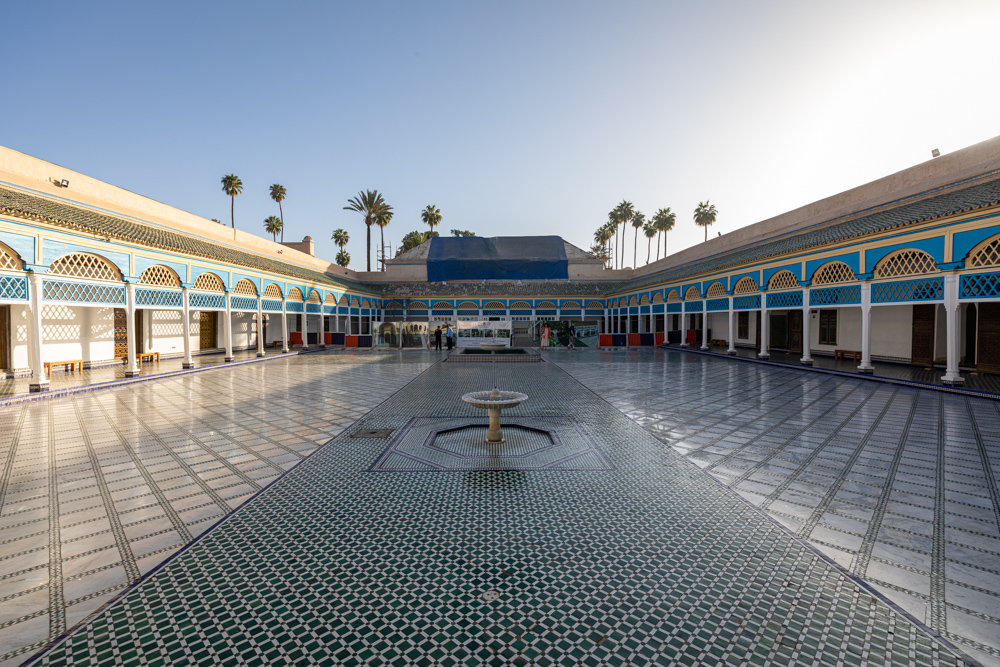
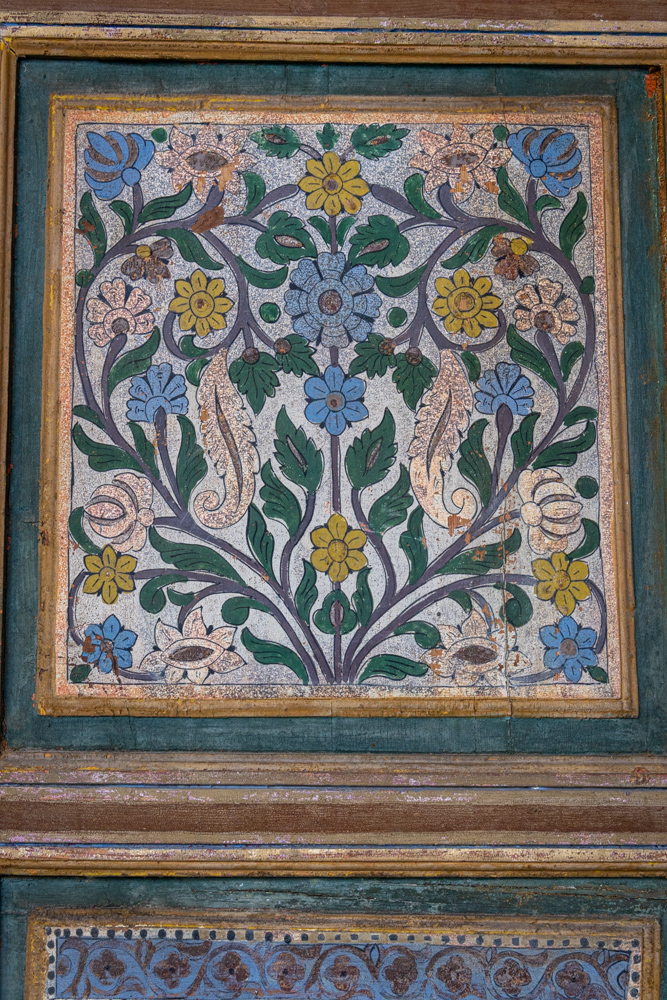
Detail of the wood work.
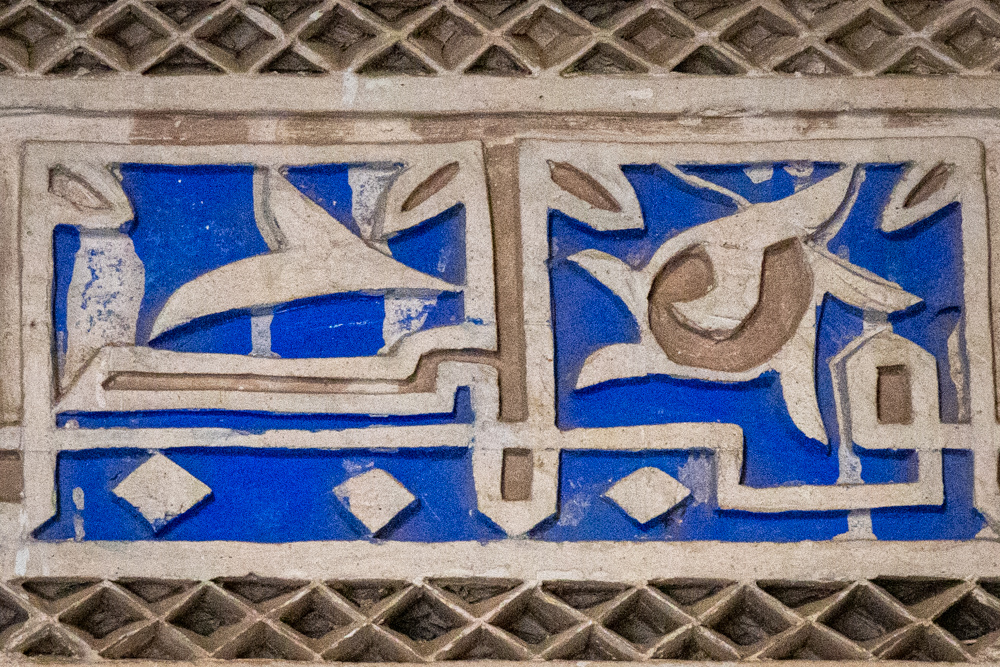


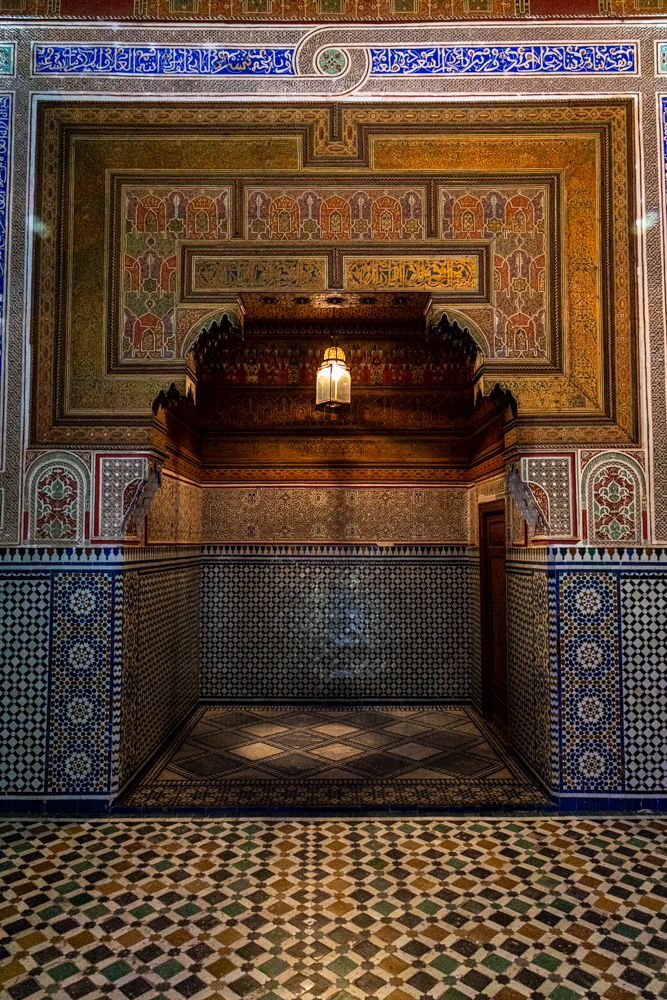
The entire palace was built on one level, possibly as Ba Ahmed's own physique (which was described as stout and obese) made it more difficult for him to go up and down stairs.

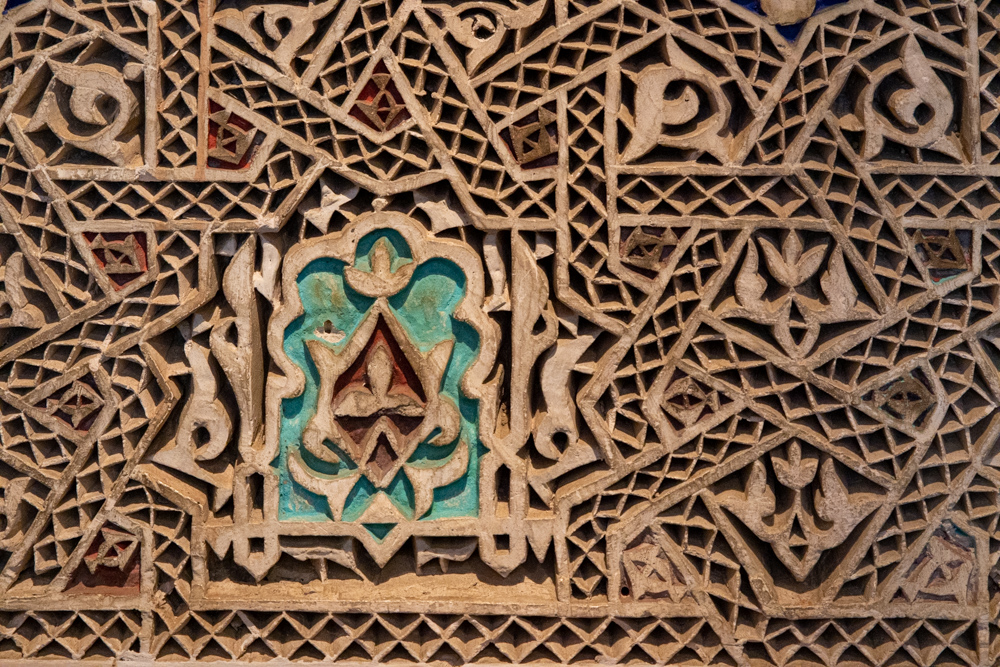
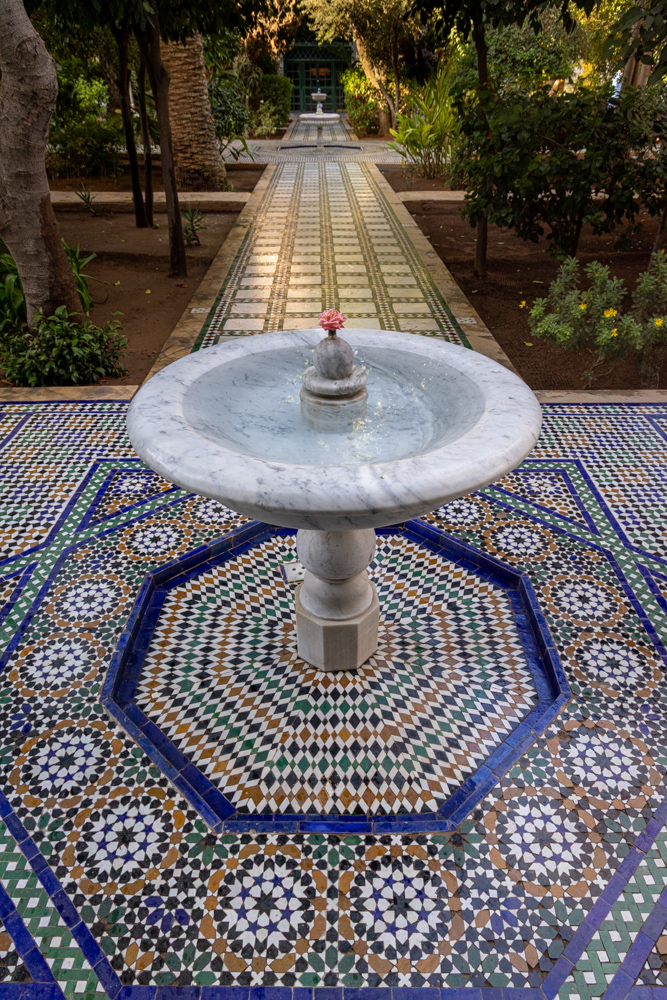
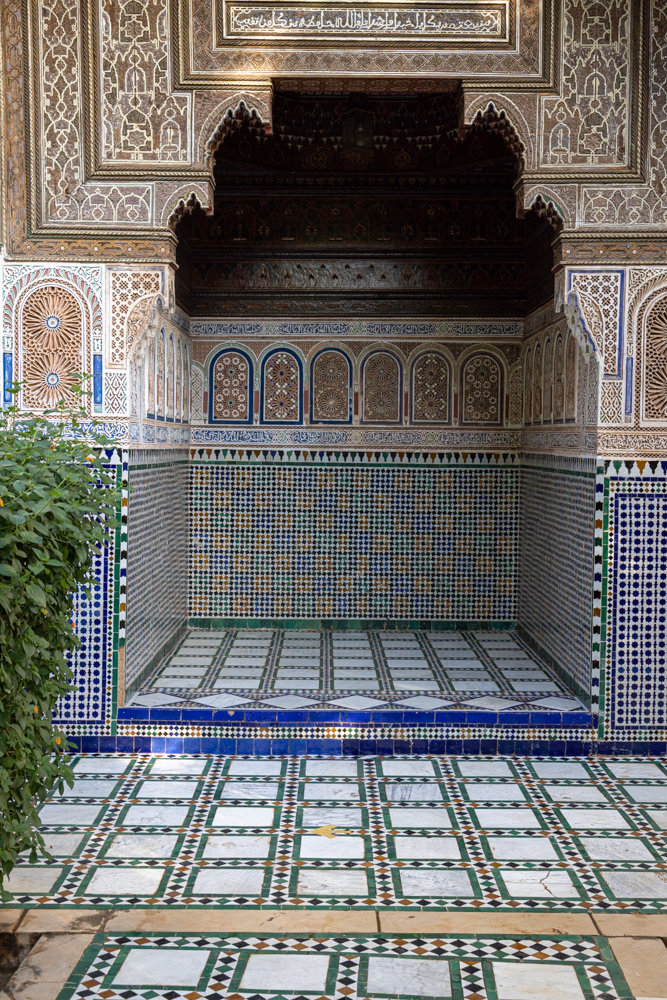
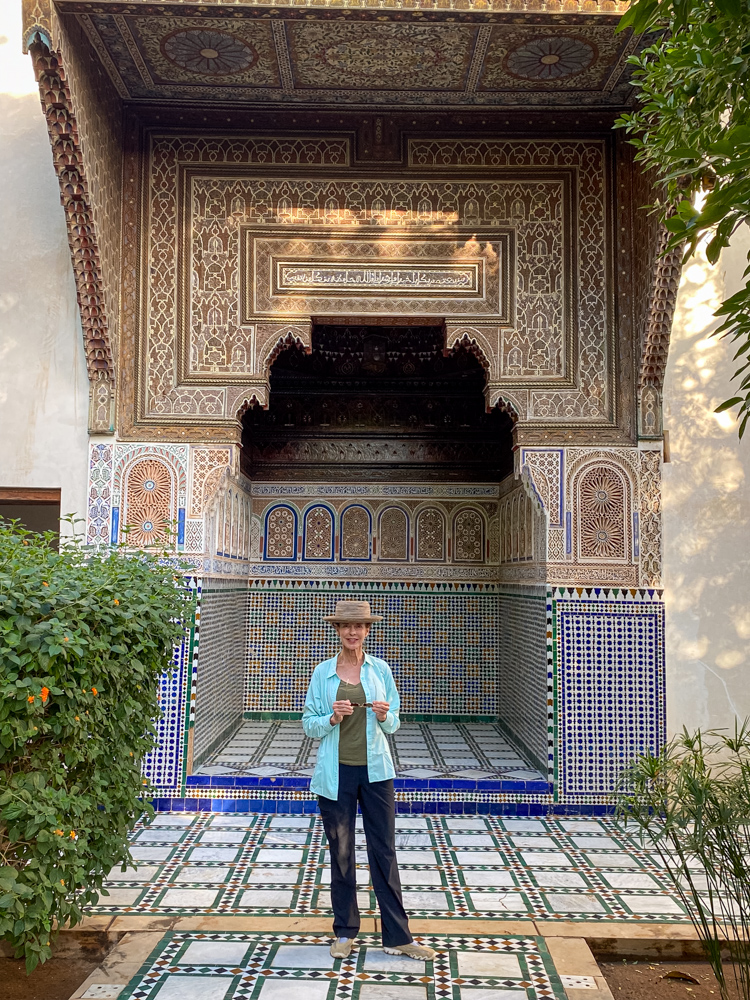

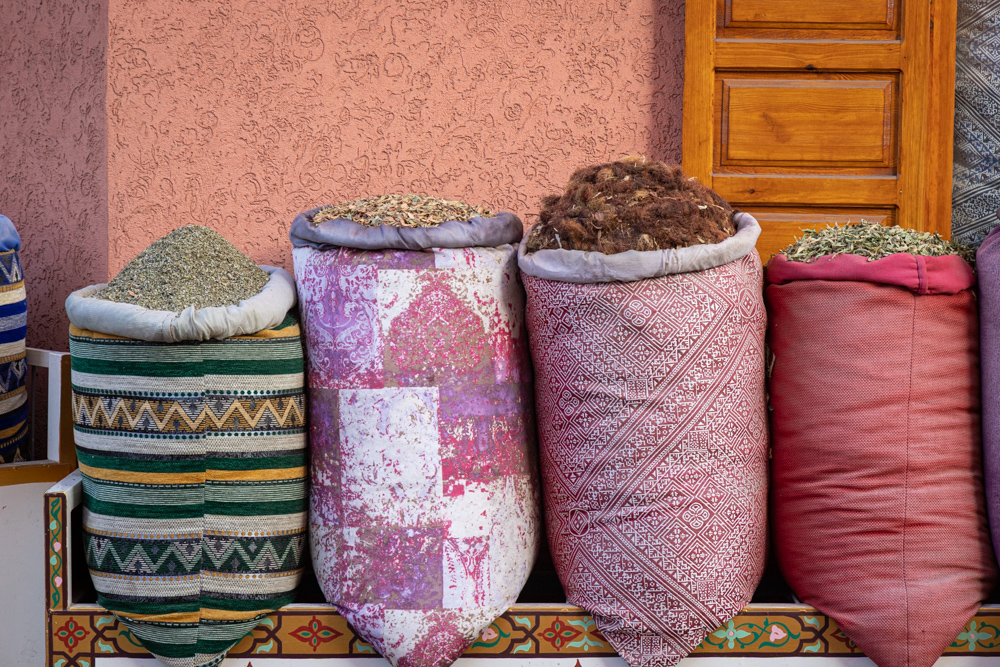
Bags of spices for sale in the market.
Walking through the Medina we spotted this guy - very fun...
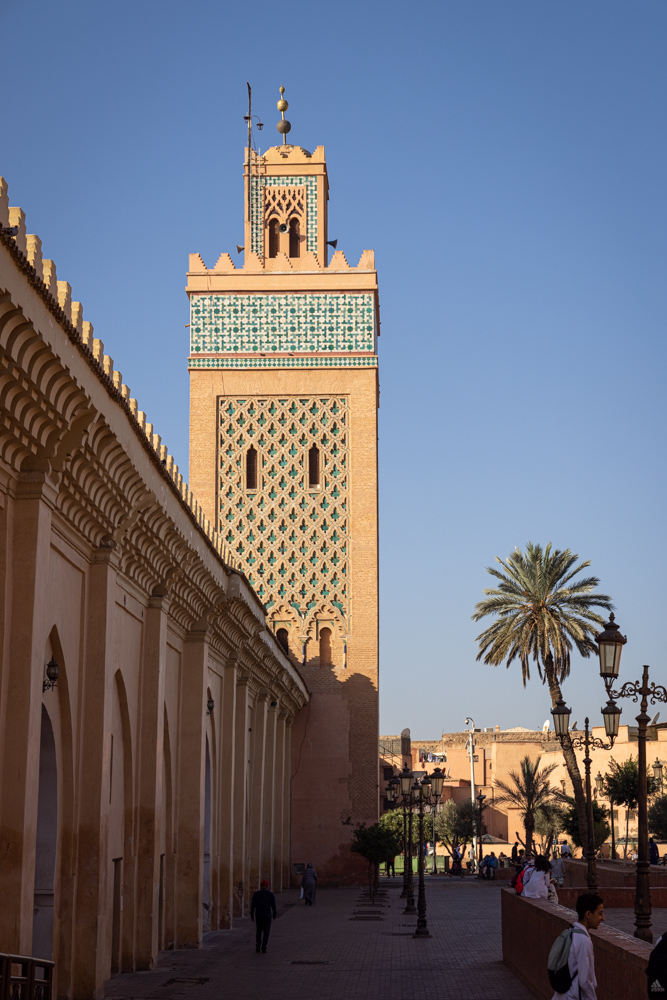
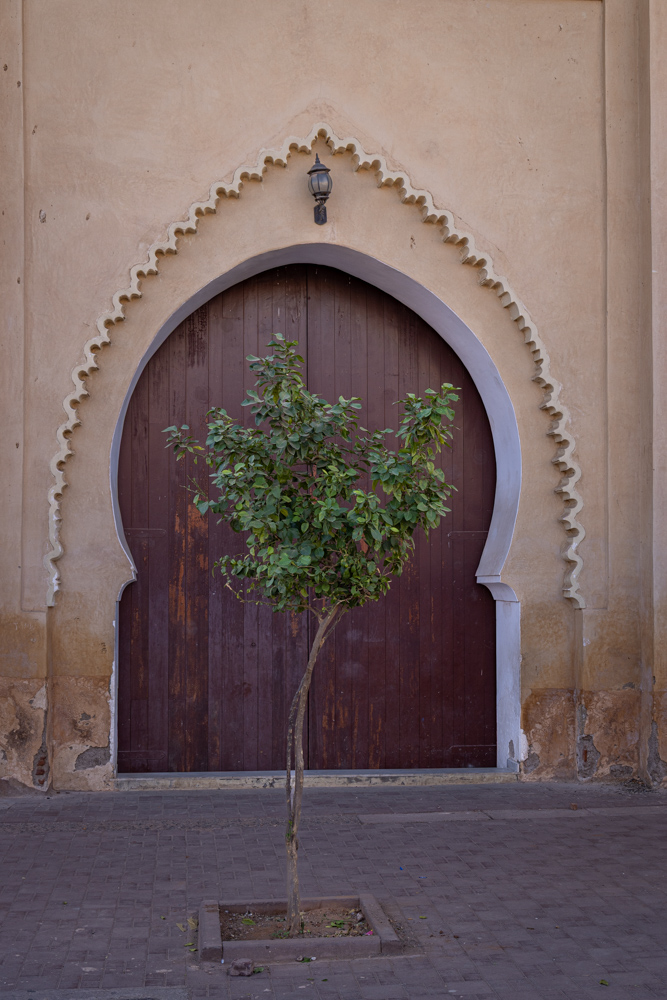

The Chamber of the Twelve Columns. Of the three large tombstones in the center, the one in the middle belongs to Ahmad al-Mansur (the sixth and most famous of all rulers of the Saadis), the one on the right belongs to Sultan Moulay Zidan (Ahmad al-Mansur's son), and the one on the left belongs to Sultan Muhammad al-Sheikh al-Saghir.
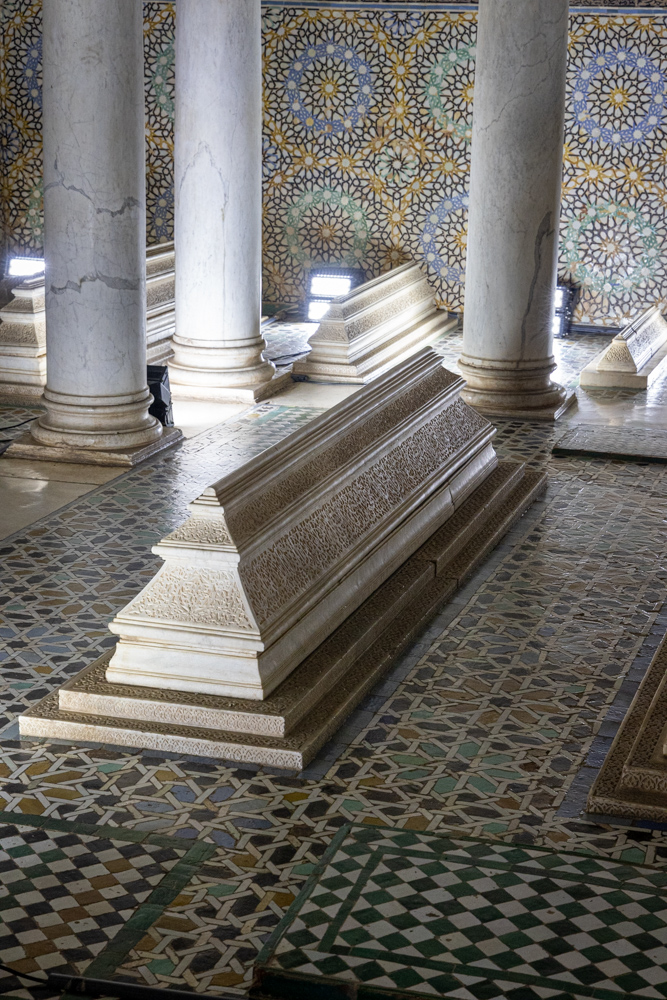

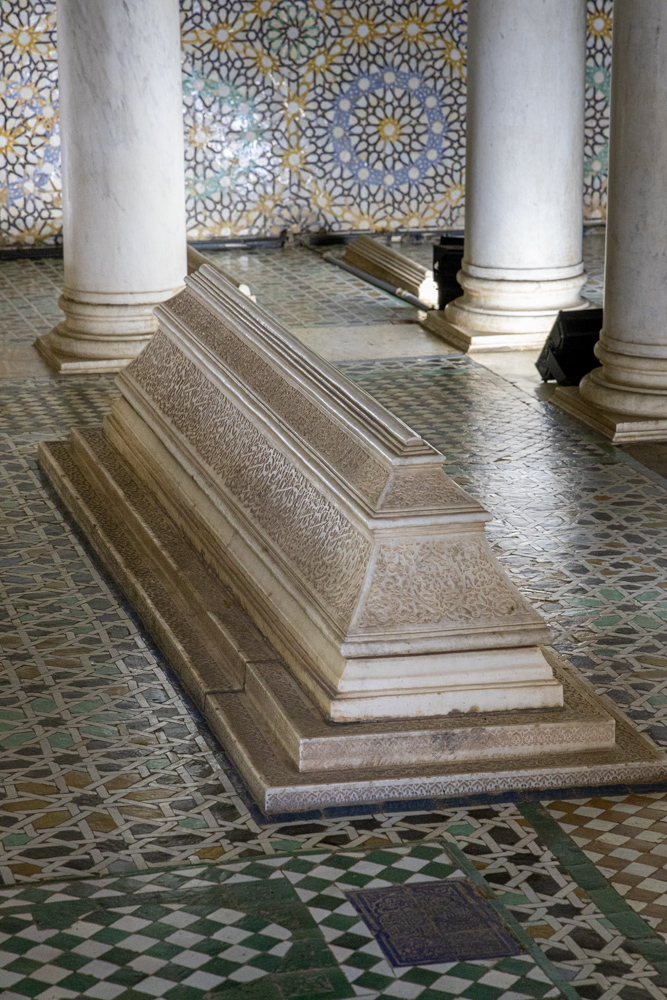
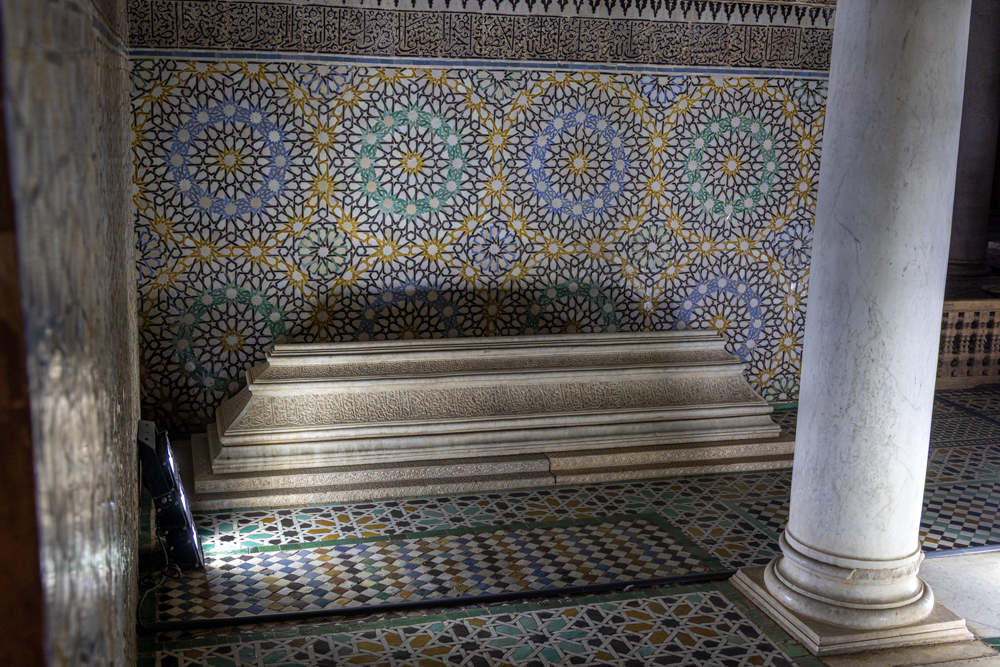
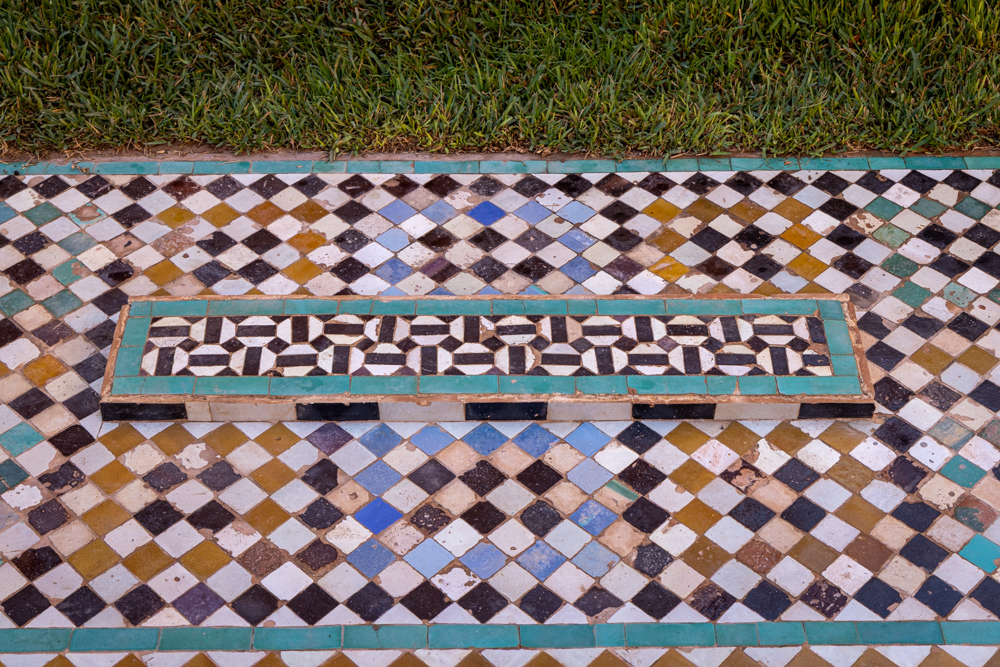
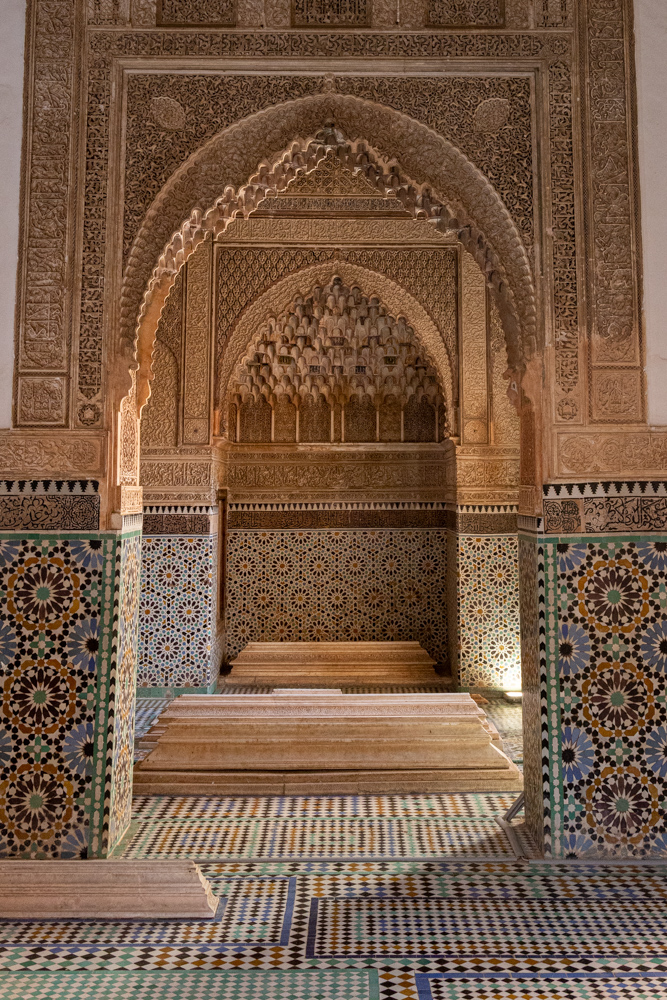

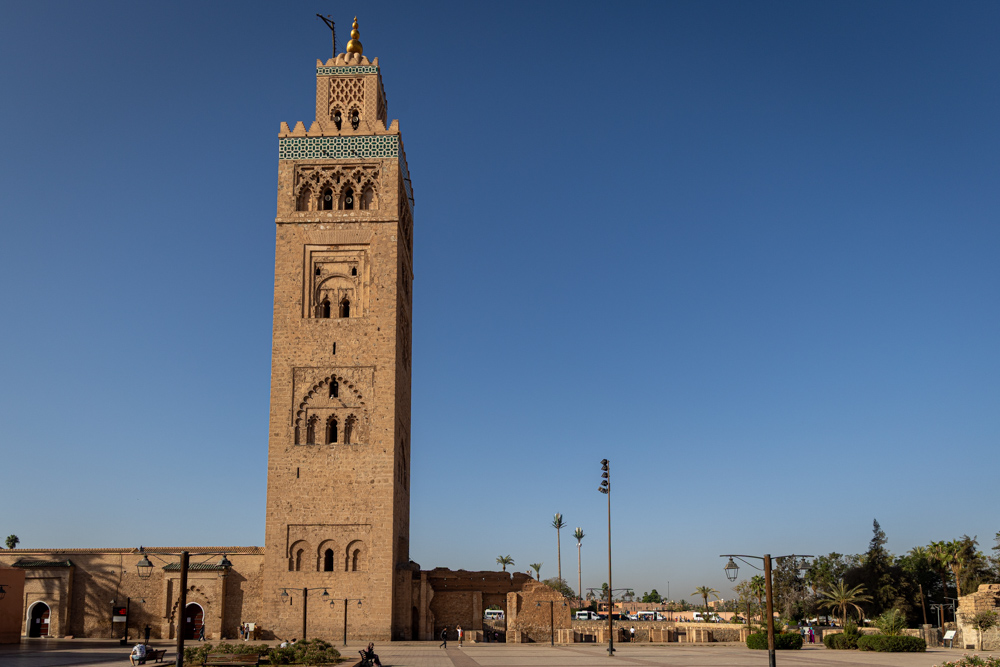
The mosque was founded in 1147 by the Almohad caliph Abd al-Mu'min right after he conquered Marrakesh. The same caliph entirely rebuilt a second version of the mosque in 1158. This second mosque is the structure that stands today. It is considered a classic and important example of Almohad architecture and of Moroccan mosque architecture generally.

Virginia Ann is in the hat talking to our guide.


The origins of Secret Garden (Le Jardin Secret) hark back to the second half of the sixteenth century, when the Saadian Sultan Moulay 'Abd-Allah began upon the urbanization of what is now the Mouassine district. There was a palace, but it was demolished in the seventeenth century.
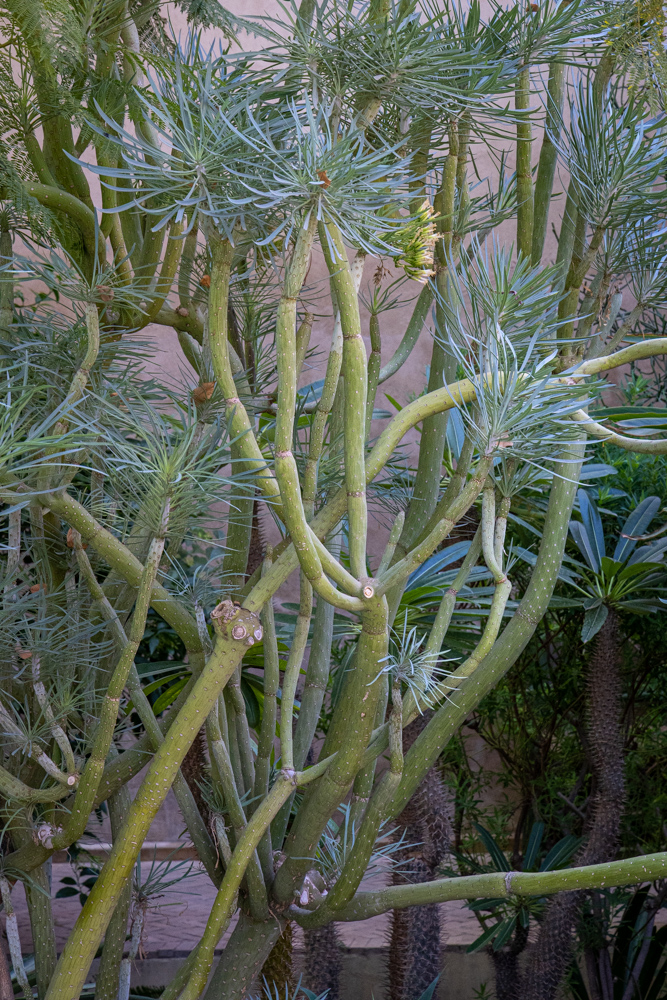

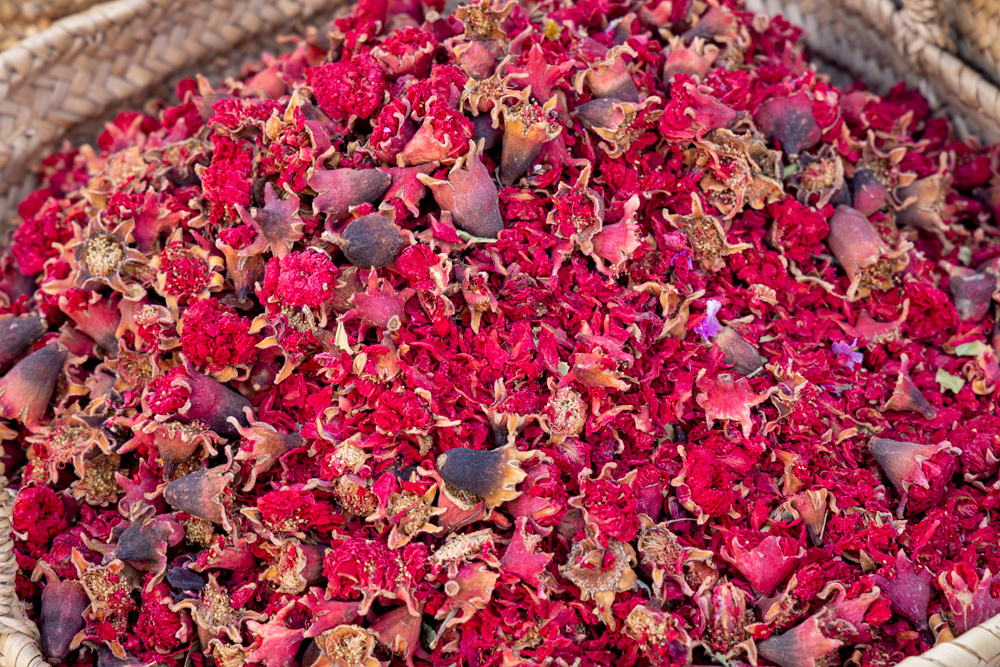
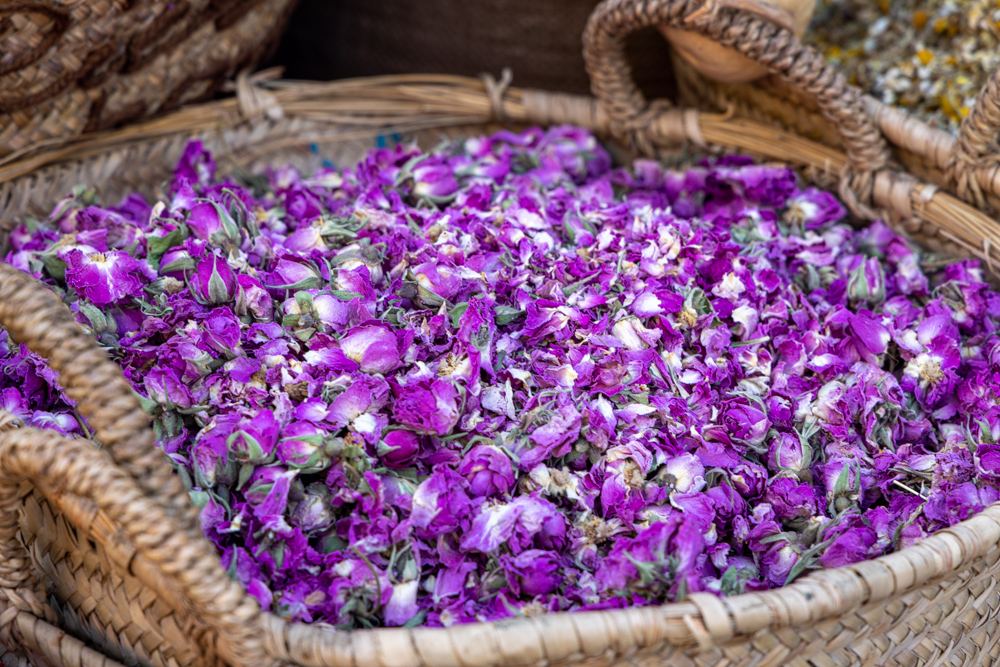
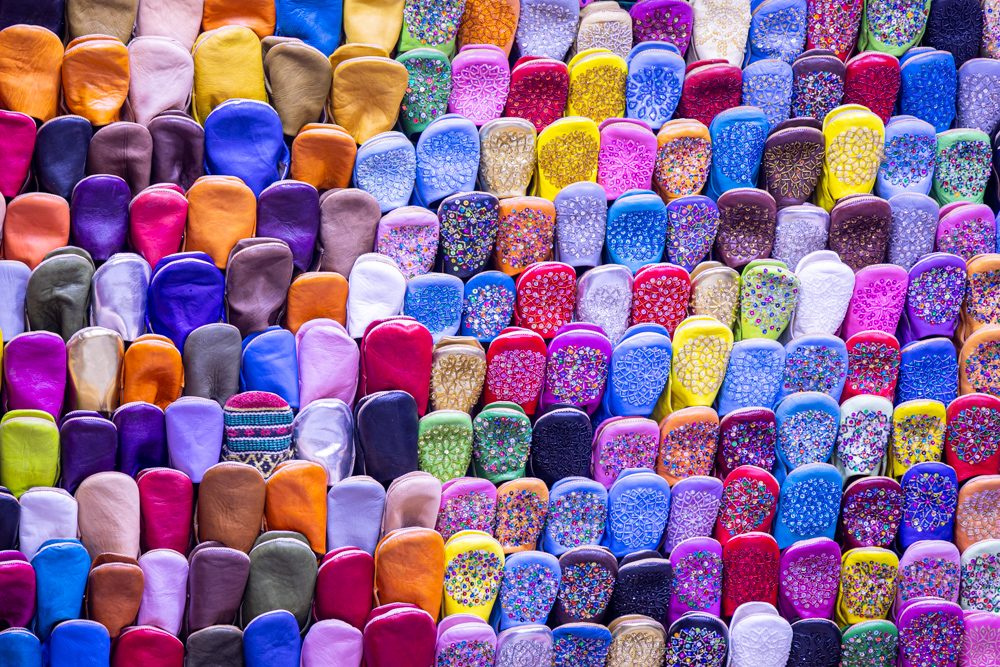
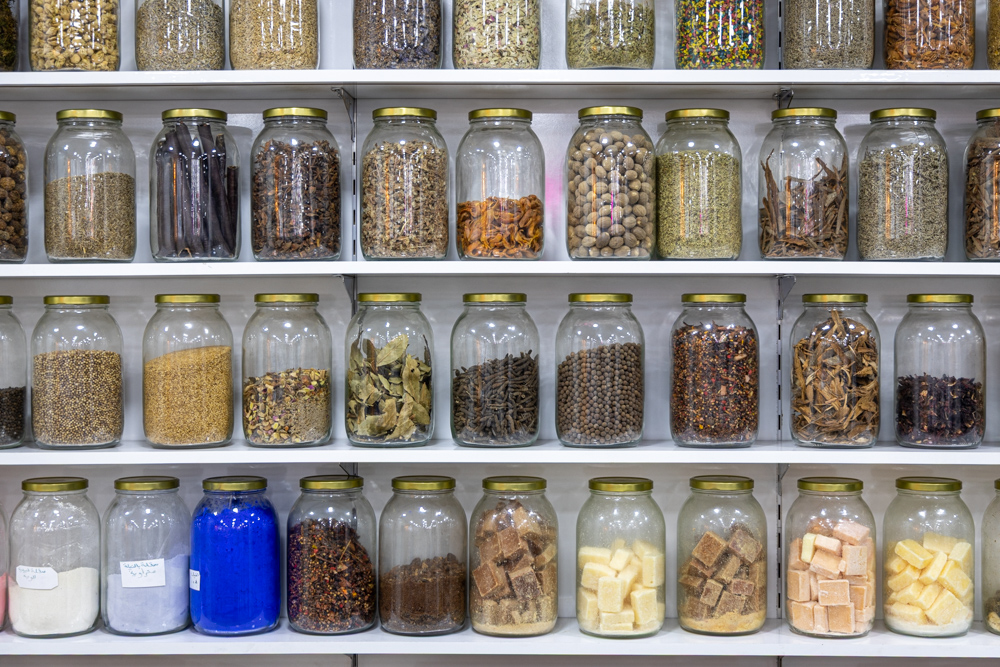




The busy Jemaa El Fnaa market.
